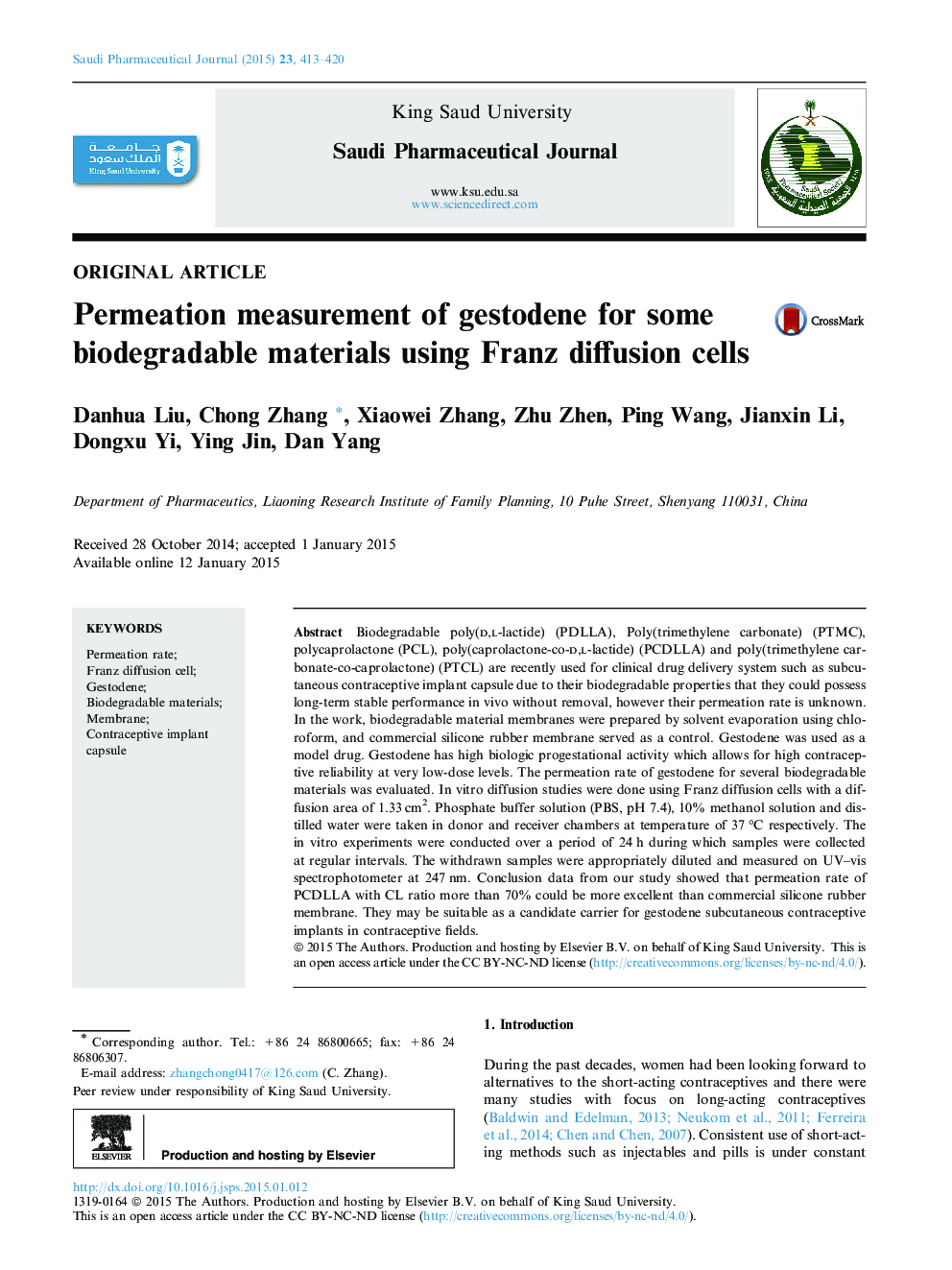| Article ID | Journal | Published Year | Pages | File Type |
|---|---|---|---|---|
| 2509470 | Saudi Pharmaceutical Journal | 2015 | 8 Pages |
Biodegradable poly(d,l-lactide) (PDLLA), Poly(trimethylene carbonate) (PTMC), polycaprolactone (PCL), poly(caprolactone-co-d,l-lactide) (PCDLLA) and poly(trimethylene carbonate-co-caprolactone) (PTCL) are recently used for clinical drug delivery system such as subcutaneous contraceptive implant capsule due to their biodegradable properties that they could possess long-term stable performance in vivo without removal, however their permeation rate is unknown. In the work, biodegradable material membranes were prepared by solvent evaporation using chloroform, and commercial silicone rubber membrane served as a control. Gestodene was used as a model drug. Gestodene has high biologic progestational activity which allows for high contraceptive reliability at very low-dose levels. The permeation rate of gestodene for several biodegradable materials was evaluated. In vitro diffusion studies were done using Franz diffusion cells with a diffusion area of 1.33 cm2. Phosphate buffer solution (PBS, pH 7.4), 10% methanol solution and distilled water were taken in donor and receiver chambers at temperature of 37 °C respectively. The in vitro experiments were conducted over a period of 24 h during which samples were collected at regular intervals. The withdrawn samples were appropriately diluted and measured on UV–vis spectrophotometer at 247 nm. Conclusion data from our study showed that permeation rate of PCDLLA with CL ratio more than 70% could be more excellent than commercial silicone rubber membrane. They may be suitable as a candidate carrier for gestodene subcutaneous contraceptive implants in contraceptive fields.
